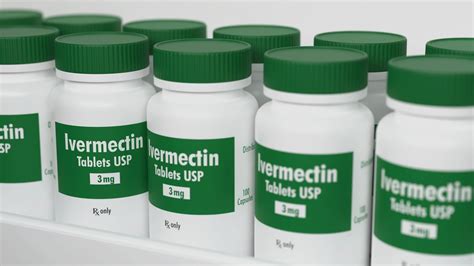Mainstream medical community hailed the drug for its widespread off-label uses — including against RNA viruses — until COVID pandemic.
By Greg Piper
ATexas hospital system imposed “new restriction criteria” on the use of ivermectin, excluding the anti-parasitic agent from treatment of COVID-19.
St. Luke’s Health will only allow its infectious disease physicians to use the drug for preventive treatment of strongyloidiasis, a roundworm infection, according to a Sept. 2 directive shared with Just the News.
Its wording suggests that non-infectious disease physicians had been considering or actually prescribing ivermectin for COVID patients.
The relatively cheap treatment has been promoted by an eclectic group of influencers. Evolutionary biologist and former Evergreen State College professor Bret Weinstein has regularly touted ivermectin on his DarkHorse podcast, which led YouTube to demonetize his channel.
America’s most popular podcaster, Joe Rogan, joined the chorus last week after taking a drug cocktail that included ivermectin in response to his COVID diagnosis. Rogan endorsed Sen. Bernie Sanders for the Democratic presidential nomination in 2020, as did Weinstein in 2016.
The drug was widely hailed in the medical community for its proven track record against a host of infections in humans — until the COVID pandemic.
Not judging ‘effectiveness’
The St. Luke’s memo is addressed to “TX Division Medical Staff” from the division’s chief medical officer, medical directors of pharmacy and therapeutics and infection prevention, and vice president for pharmacy.
While the FDA-approved drug is used off-label “for the treatment of many parasitic infections” and has “in vitro activity against some viruses, including SARS-CoV-2 [which causes COVID], it has no therapeutic utility,” the memo says. It cited Infectious Diseases Society of America and FDA statements against ivermectin in COVID treatment.
A St. Luke’s spokesperson declined to tell Just the News whether the directive amounts to a flat ban on physicians treating COVID patients with ivermectin, and whether any of its doctors were considering or actively prescribing it before the directive came down.
“Our commitment to provide the best care for our patients is rooted in data-driven, clinically-proven treatment protocols,” according to a hospital statement. “Clinical trials are currently underway to determine if this medication could be authorized and approved for COVID-19 patients, but until that time, we are not using this medication as part of our COVID-19 treatment protocols.”
The statement also warns against self-medication with the animal version of ivermectin, which is stronger than the human version, declaring: “The safest defense against severe illness, hospitalization and death from COVID-19 is to vaccinate.”

The drug is the source of growing legal battles between hospitals and families of COVID patients with severe illnesses, who demand its off-label use to treat the disease.
This week an Ohio judge protected a hospital from having to continue administering ivermectin to a ventilator patient based on his wife’s demand and an outside doctor’s prescription. That followed another judge’s 14-day temporary restraining order (TRO) ordering the administration of ivermectin.
Butler County Court of Common Pleas Judge Michael Oster ruled Monday that he wasn’t “making a decision on the effectiveness of ivermectin” but rather determining that Jeffrey Smith’s wife Julie hadn’t met the standard for a preliminary injunction against West Chester Hospital.
He noted that the CDC, FDA and leading medical associations released statements against ivermectin following Judge Gregory Howard’s Aug. 23 TRO, and said studies on ivermectin’s effectiveness are not robust.
Outside doctor Fred Wagshul could only say Smith’s condition “seems to be” improving after the hospital administered ivermectin under Judge Howard’s order.
Oster also said nothing is stopping Julie Smith from transferring her husband to a hospital where Wagshul has admitting privileges and can continue administering the drug.
‘Wonder drug’ with penicillin, aspirin
The Ohio lawsuit was part of a nationwide effort by New York attorney Ralph Lorigo, working in conjunction with pro-ivermectin doctor group Front Line Covid-19 Critical Care Alliance, which includes Wagshul, according to Bloomberg Law.
Lorigo achieved his first legal victory in January in Buffalo, convincing a court to order a hospital to treat an 80-year-old on a ventilator with the drug. The patient subsequently recovered. Another happened in Illinois, where a state appeals court upheld an order requiring an Elmhurst hospital to administer ivermectin.
The lawyer told Bloomberg Law he now receives “nonstop” calls worldwide from patients trying to force hospitals to treat them with the drug as a last resort.
The mainstream medical community seemingly only became resistant to off-label use of ivermectin during the COVID pandemic.
Ten years ago a Japanese medical journal dubbed ivermectin, which was discovered in Japan in the late 1970s, a “wonder drug” alongside penicillin and aspirin. It cited the drug’s “versatility, safety and the beneficial impact that it has had, and continues to have, worldwide — especially on hundreds of millions of the world’s poorest people,” with new uses “continually being found.”
A 2017 review in The Journal of Antibiotics, published by Nature, repeated the “wonder” label.
“Today, ivermectin is continuing to surprise and excite scientists, offering more and more promise to help improve global public health by treating a diverse range of diseases, with its unexpected potential as an antibacterial, antiviral and anti-cancer agent being particularly extraordinary,” the article said.
The review specifically cited the drug’s “antiviral activity against several RNA viruses” — a category that includes SARS-CoV-2, which causes COVID.
Read More From The PatriotAmerican
Just last month the chairman of the Tokyo Metropolitan Medical Association held a press conference to recommend ivermectin to treat COVID as Japan experienced a spike in cases. Haruo Ozaki cited drastically lower COVID cases and deaths in African countries that prescribed the drug preventively for parasites, compared to African countries that didn’t.

